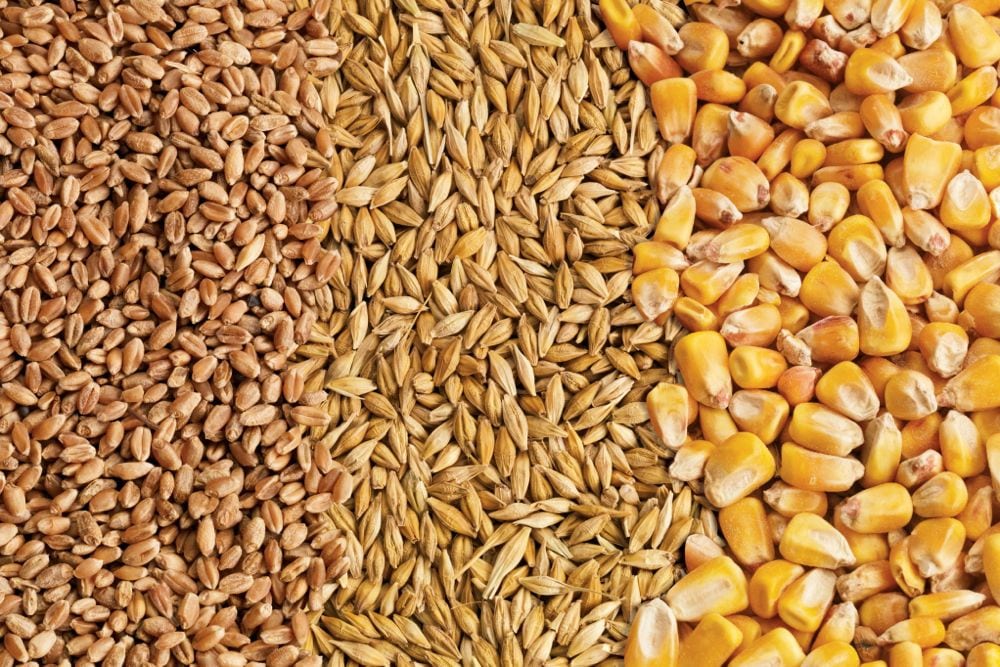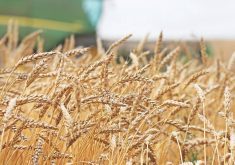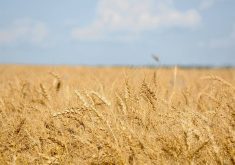Saskatchewan’s Crown auto insurer has set up public meetings to discuss allowing retired farmers, farmers’ dependants, farm corporation owners and others the use of “F” (farm) license plates on their vehicles.
SGI, the government insurance company, will host six meetings in November and December to consider up to seven possible expansions for the use of farm plates.
Generally, because vehicles used for farm purposes tend to travel fewer kilometres and run on roads where there’s less traffic and fewer collisions, Saskatchewan’s F-class plates provide lower registration fees and SGI premiums for most farm trucks, trailers and large vans (larger than the “one-ton” models).
Read Also

Feed Grains Weekly: Domestic prices remain flat
Although there has been some upward movement in feed grain prices, particularly in Alberta, it’s not domestic demand that’s pushing them higher, said Jim Beusekom, president of Market Place Commodities in Lethbridge on Feb. 19.
Owners of F-plated vehicles can also qualify for a fuel tax exemption permit to buy marked diesel fuel tax-free, in bulk, as long as the vehicle is being used for farm business.
“The needs of farmers and farming business have changed dramatically since some of these policies were last reviewed as much as 30 years ago,” Tim McMillan, the provincial minister responsible for SGI, said in a release Thursday.
“To ensure the farm plate program continues to be relevant, we have asked SGI to review current rules and policy,” said McMillan, the MLA for Lloydminster and a former farmer. “Of course, gathering ideas and feedback from those impacted is a critical part of that process.”
For example, anyone who retires from farming, whether by renting or selling their land, gets a “winding down” allowance of one year before they must forfeit their F plates. It’s been proposed, SGI said, to allow retired farmers to keep their farm plates.
Questions the public would be asked to consider at the upcoming meetings would then include: Does the farmer need to remain on the farm? Does he or she need to be a certain age? Does it matter how long the farmer had been farming? Can they be employed off the farm after they retire?
Other proposals include allowing farmers’ dependants (that is, children) to use F plates, which they’re not currently allowed to have on their vehicles unless they qualify for F plates on their own.
The public will also be asked to consider allowing the use of farm plates by the principals of a farm corporation. Currently, once a farmer moves a farm operation into a corporation, the corporation, not the individual, is eligible for F plates.
Under that proposal, SGI said, an individual would have to be one of the corporation’s principal owner and would have to be in charge of day-today operations of the farm.
Gross income
SGI is also considering whether to change the rules for F plate eligibility to use Line 168 from a farmer’s income tax return, on which their gross farm income is stated.
Currently, the minimum requirement for F plates is a farm that harvests at least 75 acres into wheat, barley, flax, canola, oats or rye or produces a minimum of $10,000 in gross revenue from all other types of farm operations (livestock, berries, alfalfa, et cetera).
SGI also proposes to allow farmers who own power units such as semi trailers to help other farmers on a non-paid basis. Currently, only two- and three-axle trucks with F plates can be used for helping other farmers, whereas power units are only allowed to be used in the operation of the registered owner’s farm.
Discussion will also include the possible introduction of a 30-day upgrade permit for a farm plate, apart from the current policy in which farmers pay various fees to use farm vehicles for different non-farm uses, such as use within a strict 40-km radius, a single-trip permit for a fee of 0.6 cents per tonne per kilometre, or for a fee based on gross vehicle weight (GVW).
Lastly, SGI will ask the public to consider allowing the use of F plates on trucks used in custom farming operations, such as custom combining, seeding, spraying, baling and so on. Custom farming is not now an allowed use for F-plated vehicles, beyond a “limited allowance” for two- or three-axle trucks used to haul “primary products.”
While such an expanions could allow farmers to diversify their farm operations., SGI asked, “Does this create an unfair advantage for farmers and therefore take away business from commercial operators?”
SGI’s scheduled meetings are set for Davidson on Nov. 8, Canora on Nov. 30, Melfort on Dec. 1, Maidstone on Dec. 2, Milestone on Dec. 6 and Swift Current on Dec. 9.
Those interested in providing comment on any or all of the chosen topics but who can’t attend one of the six meetings can contact SGI by phone toll-free at 888-751-1816, by email or through SGI’s online survey.















